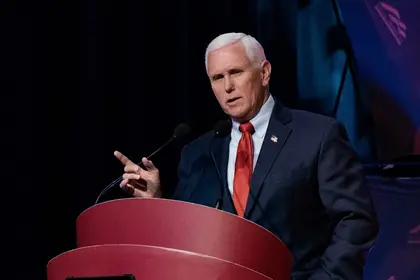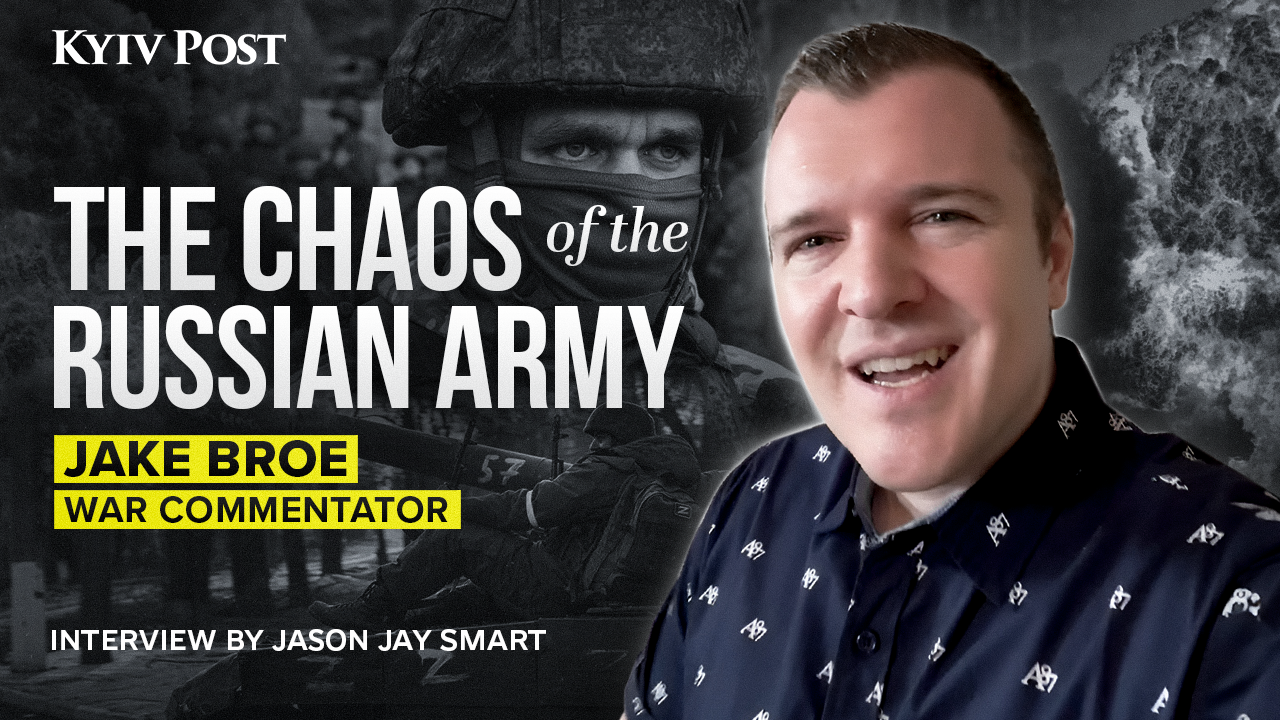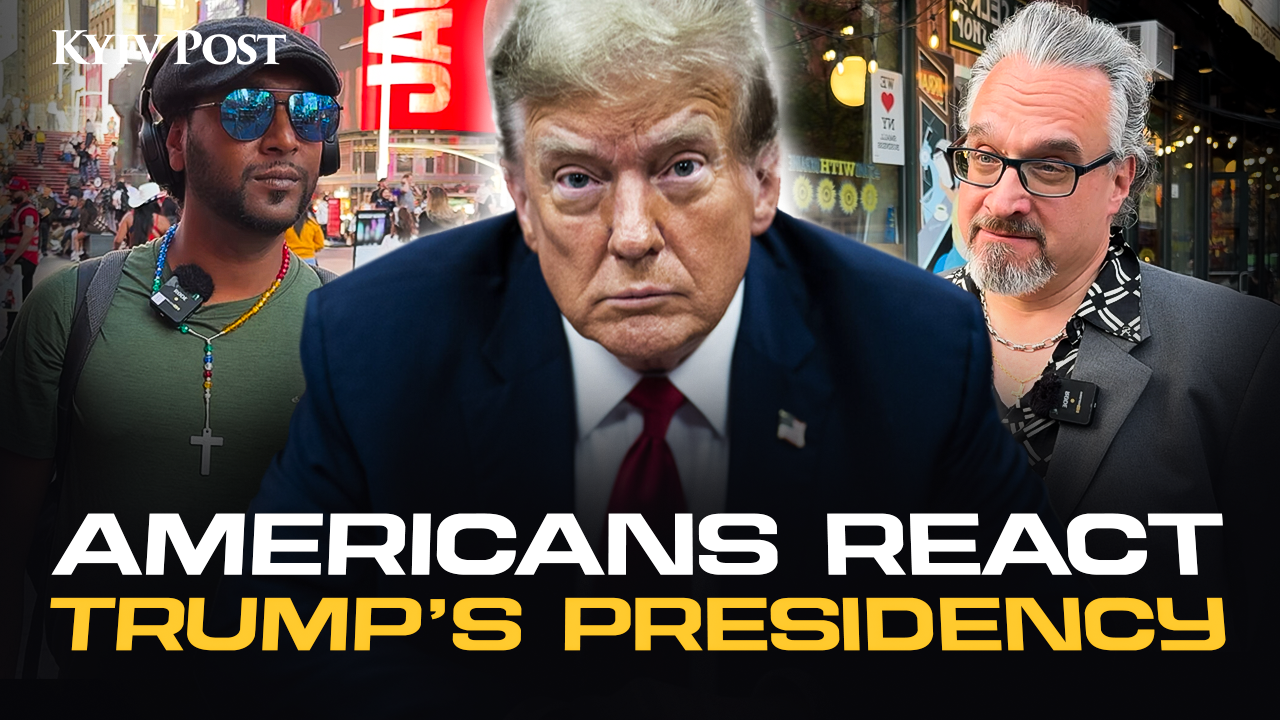Former Vice President Mike Pence has entered the Republican race for the biggest job in the world. While Pence brings a solid record of support for Ukraine, including calling for fighter aircraft for Ukraine, he currently has much lower odds than his former boss, Donald Trump, of winning the nomination as Republican candidate for President in the 2024 elections.
In the lead-up to his announcement, Pence actively distanced and differentiated himself from both frontrunner Trump and fellow rival Ron DeSantis on “the Ukraine issue.” As reported last week by Kyiv Post, this is also true of Nikki Haley, the former US Ambassador to the UN and also a contender for the nomination.
JOIN US ON TELEGRAM
Follow our coverage of the war on the @Kyivpost_official.
Mike Pence on Donald Trump’s recent social media posts:
— PoliticsVerse 🇺🇸 (@PoliticsVerse_) June 3, 2023
“Nobody should be praising the dictator in North Korea or praising the leader of Russia, who has launched an unprovoked war of aggression in Ukraine” pic.twitter.com/Toyy4KlImW
Both Trump and DeSantis have not said who they want to win the war, or what they would do about aid or security guarantees for Ukraine.
They have both argued that American involvement in Ukraine is not in the nation’s interest and criticized or questioned the amount of aid the US has provided. After criticism from fellow Republicans, DeSantis in late March walked back his dismissal of the Russian invasion as a “territorial dispute.”
Pence In Brief on Ukraine
On the other hand, a review of Pence’s public statements by Kyiv Post shows that, in his stance on Ukraine and Russia’s full-scale invasion, he has taken a strongly supportive position and gone further than his rivals. In summary, he has:

Will Trump Choose Opponent of Ukraine’s Interests for Sensitive Diplomatic Role?
· Condemned Russia and Putin for the war, and called for accountability;
· Underscored the global strategic and security significance of the war and its implications for countries beside Ukraine;
· Called for an acceleration in American military aid to Ukraine, including tanks, planes and missiles, and;
· Visited the Polish/Ukrainian border at the height of the refugee crisis.
Additionally, despite political narratives and the realities of the “Zelensky phone call” incident, the Trump Administration, of which Pence was a part, opened the door to lethal military aid to Ukraine prior to the full-scale invasion, including sending Javelins that were critical to the defense of Kyiv and Kharkiv.
Pence, however, has a political mountain to climb before he could possibly plant his policy flag on any Presidential summit. Polls, including by fivethirtyeight, have Trump as the clear favorite (53.7 percent support), then DeSantis (21.3 percent), then Pence (5.4 pecent) and then Halley (4.5%).
Pence’s Policy Position
In an April interview with CNN’s Wolf Blitzer, Pence said that “there’s no moral equivalency – this is a Russian invasion… It’s unspeakable. This unprovoked Russian war of aggression has got to be met with strength.”
“Anybody who thinks that Putin will stop at Ukraine has another thing coming,” he said.
Pence also said that Putin “has absolutely committed war crimes.”
Where Pence takes a more ‘hawkish’ position than other Republican contenders in his call for faster and more American military aid for Ukraine, including by invoking the ‘Reagan doctrine’ of supporting overseas anti-communist forces.
“We need to continue to provide Ukrainian soldiers with the support they need to repel the Russian invasion… We ought to give them the tanks. We ought to give them the planes. We ought to give the missiles,” Pence said.
In a major speech at the University of Texas on the first anniversary of Russia’s full-scale invasion, Pence also outlined his position and spoke out against Trump’s seeming admiration of Vladimir Putin.
“While some in my party have taken a somewhat different view, let me be clear: There can be no room in the leadership of the Republican Party for apologists for Putin. There can only be room for champions of freedom,” Pence said.
“If we surrender to the siren song of those in this country who argue that America has no interest in freedom’s cause, history teaches we may soon send our own into harm’s way to defend our freedom and the freedom of nations in our alliance,” Pence said in an acknowledgement of the US’ obligation to defend other NATO members if they are attacked.
“The fastest path to peace is to help Ukraine win the war. Time is of the essence. We need to provide tanks and resources in months, not years to the people of Ukraine so they can defend their country,” Pence said.
Civil War Between Reagan-Style and Non-Interventionist Republicans
The rift on Ukraine between contenders such as Pence and Haley, on the one hand, and Trump and DeSantis, on the other hand, are part of the larger story of the Republican Party’s transformation on foreign policy in the past few decades.
During that time, as the Washington Post noted in March report, a segment of notable conservative figures — most influentially, Trump — began to overtly reject the Cold War-era Reagan posture of leading the “free world” to push a very different view of America’s role in the world.
“This is an ongoing civil war, and I think that the realists and those of us who believe in a more restrained foreign policy have momentum,” said Dan Caldwell, vice president at the conservative Center for Renewing America, said to WaPo [The Washington Post – ed.].
“You are seeing more Republicans at the grass-roots level, at the policymaker level, and even at the institutional and donor level embracing a foreign policy of realism and restraint,” he said.
Public opinion surveys have repeatedly found that Republicans, who initially supported aiding Ukraine in large majorities, have since become split on the assistance. In February, 50 percent of Republicans said the United States was doing “too much” to support Ukraine, up from 18 percent last April, according to a Washington Post-ABC News poll.
“The average grass-roots Republican is a lot more noninterventionist than the average Republican senator,” Andy Surabian, a Republican strategist, told WaPo. “There’s a giant disconnect between our party’s voters and our party’s elected leaders on that issue.”
You can also highlight the text and press Ctrl + Enter









